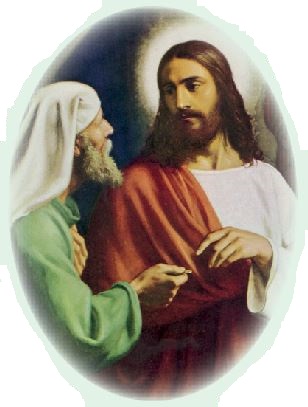A Christian View of Money
In the MICHAEL Magazine we are proud and honored to publish the Papal condemnations of the present financial system. But there are other Christian institutions which have also condemned this system. A little over 50 years ago, noting that there existed a very real poverty, and this despite the abundance of goods available, the authorities of the Congregational Union of Scotland, came to the realization that there must be something fundamentally wrong with the economic system. A committee was set up, the Christian Doctrine of Wealth Committee, “to examine the financial system from the Christian standpoint.”
The first meeting of this committee took place on September 22, 1960 and was followed up by 16 other meetings. They consulted a great number of economists, professors, bankers, businessmen, and scholars, and published the results of their research in a book titled, A Christian Doctrine of Wealth.
 On page 39 of this book we can find the following conclusion:
On page 39 of this book we can find the following conclusion:
1. We believe that the existing system of debt-finance, whereby practically all money comes into circulation as interest-bearing debt, is prejudicial to human well-being, a drag on the development and distribution of wealth, finds no justification in the nature of things, and perpetuates a wrong conception of the function of money in human society.
2. We believe that the virtual monopoly of credit enjoyed by the banking system is contrary to reason and justice. When a bank makes a loan, it monetizes the credit of a credit-worthy customer, admittedly a necessary service. But when it has done this, it hands him back his monetized credit as a debt to the bank plus 6, 8 or 9%. There seems to be an anomaly here, masked by use and wont, that calls for examination. The true basis of credit is found in the assets of the nation—men, labour, skills, natural resources and the enormous power for production now in human hands. The creation of function of money ought to bear a strict relation to those physical facts, and to nothing else.
3. Since we are confident that it is not beyond the wit of man to devise a system from which these features would be absent, we would urge that it is an imperative Christian duty to press for the introduction of such a system.
With all this evidence to back them, the committee then insisted that it was an obligation to change the financial system, but they did not provide a technique for doing so. Of all the propositions which have been presented so far for making this change, only Social Credit offers the most direct means of attaining a financial system true to its goal in the functioning of a real economy. Its goals are:
To establish a system that is flexible and in constant accord with the realities of production and of consumption;
To make of money the means, instead of a determining factor of economic activities;
To Finance all possible production corresponding to the needs of the population, according to the hierarchy of urgency;
To maintain a purchasing power in accordance with the production offered, so as to meet the normal needs of the population; and thus permit each person to exercise his fundamental right to his share in the material goods in a world where these things cannot be obtained without money. Also insuring to each person a revenue (dividend) given to them as individuals, and independent from his work.
The dividend has been explained many times in the MICHAEL Magazine, and we will continue. As the remedy to today’s false financial system, Social Credit is a much better solution than what socialism and communism have to offer. Is it not?
This application of the Social Credit propositions would be a means par excellence to bring about God’s plan for His creation of the Earth’s riches. A plan which our great popes, from Leo XIII to Francis, remind us of more and more.
Yes, we must change the present financial system if we do not wish for this undeserved privation to last. The poor continue to die from hunger, while an abundance of food is kept under lock and key. The perpetuation of so much suffering can only call down the wrath of God upon us.
Louis Even
